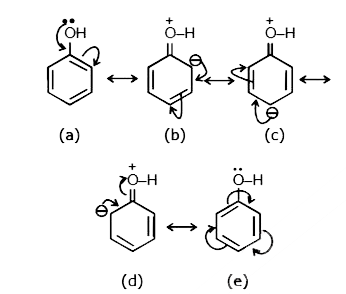The number of 7 digit integers abcdefg, where a<b<c<d>e>f>g such that a, b, c, d, e, f, g in {1,2,3,…..,9}. Are
700
20
720
800
The correct Answer is:C
To solve the problem of finding the number of 7-digit integers abcdefg such that a<b<c<d>e>f>g with a,b,c,d,e,f,g∈{1,2,3,…,9}, we can break it down into cases based on the value of d.
1. Understanding the constraints:
- We need to select 4 digits for a,b,c,d such that a<b<c<d.
- We also need to select 3 digits for e,f,g such that e>f>g.
- The digits must be chosen from the set {1,2,3,…,9}.
2. Case Analysis Based on d:
- We will analyze the cases based on the value of d (which can take values from 4 to 9, since we need at least three smaller digits for a,b,c and three smaller digits for e,f,g).
3. Case 1: d=4:
- Possible digits for a,b,c are {1,2,3} (3 choices).
- Possible digits for e,f,g are {5,6,7,8,9} (5 choices).
- Choose 3 from 5: (53)=10.
- Total for this case: (33)×10=1×10=10.
4. Case 2: d=5:
- Possible digits for a,b,c are {1,2,3,4} (4 choices).
- Possible digits for e,f,g are {6,7,8,9} (4 choices).
- Choose 3 from 4: (43)=4.
- Total for this case: (43)×4=4×4=16.
5. Case 3: d=6:
- Possible digits for a,b,c are {1,2,3,4,5} (5 choices).
- Possible digits for e,f,g are {7,8,9} (3 choices).
- Choose 3 from 3: (33)=1.
- Total for this case: (53)×1=10×1=10.
6. Case 4: d=7:
- Possible digits for a,b,c are {1,2,3,4,5,6} (6 choices).
- Possible digits for e,f,g are {8,9} (2 choices).
- Choose 3 from 2: (23)=0.
- Total for this case: 0.
7. Case 5: d=8:
- Possible digits for a,b,c are {1,2,3,4,5,6,7} (7 choices).
- Possible digits for e,f,g are {9} (1 choice).
- Choose 3 from 1: (13)=0.
- Total for this case: 0.
8. Case 6: d=9:
- Possible digits for a,b,c are {1,2,3,4,5,6,7,8} (8 choices).
- Possible digits for e,f,g are none (0 choices).
- Total for this case: 0.
Final Calculation:
Now, we sum the totals from all the cases:
- Case 1: 10
- Case 2: 16
- Case 3: 10
- Case 4: 0
- Case 5: 0
- Case 6: 0
Total = 10+16+10+0+0+0=36.
Final Answer:
The total number of 7-digit integers abcdefg such that a<b<c<d>e>f>g is 36.
- We need to select 4 digits for a,b,c,d such that a<b<c<d.
- We also need to select 3 digits for e,f,g such that e>f>g.
- The digits must be chosen from the set {1,2,3,…,9}.
- We will analyze the cases based on the value of d (which can take values from 4 to 9, since we need at least three smaller digits for a,b,c and three smaller digits for e,f,g).
- Possible digits for a,b,c are {1,2,3} (3 choices).
- Possible digits for e,f,g are {5,6,7,8,9} (5 choices).
- Choose 3 from 5: (53)=10.
- Total for this case: (33)×10=1×10=10.
- Possible digits for a,b,c are {1,2,3,4} (4 choices).
- Possible digits for e,f,g are {6,7,8,9} (4 choices).
- Choose 3 from 4: (43)=4.
- Total for this case: (43)×4=4×4=16.
- Possible digits for a,b,c are {1,2,3,4,5} (5 choices).
- Possible digits for e,f,g are {7,8,9} (3 choices).
- Choose 3 from 3: (33)=1.
- Total for this case: (53)×1=10×1=10.
- Possible digits for a,b,c are {1,2,3,4,5,6} (6 choices).
- Possible digits for e,f,g are {8,9} (2 choices).
- Choose 3 from 2: (23)=0.
- Total for this case: 0.
- Possible digits for a,b,c are {1,2,3,4,5,6,7} (7 choices).
- Possible digits for e,f,g are {9} (1 choice).
- Choose 3 from 1: (13)=0.
- Total for this case: 0.
- Possible digits for a,b,c are {1,2,3,4,5,6,7,8} (8 choices).
- Possible digits for e,f,g are none (0 choices).
- Total for this case: 0.
Now, we sum the totals from all the cases:
- Case 1: 10
- Case 2: 16
- Case 3: 10
- Case 4: 0
- Case 5: 0
- Case 6: 0
The total number of 7-digit integers abcdefg such that a<b<c<d>e>f>g is 36.
Topper's Solved these Questions
Similar Questions
Knowledge Check
If f(c) < 0 and f'(c) > 0 , then at x = c , f (x) is -
AmaximumBminimumCneither maximum nor minimumDeither maximum or minimumab=cd=ef=k(a,b,c,d,e,f>0) then
Ak=a+c+eb+d+fBk=a2+c2+e2b2+d2+f2Ck=c2e2d2f2Dk=(acebdf)13If the median of a, b, c, d, and e(a<b<c<d<e) is k, then find the median of b2,c2,andd2.
Ak2BkC2D2k
If a,b,candd are positive integers and a<b<c<d such that a,b,c are in A.P.andb,c,d are in G.P.andd−a=30. Then d−c is k then find the sum of the digits in k
View SolutionIf a<0,b>0and c<0, then the point P(a,b,−c) lies in the octant
View SolutionIf a<b and c<0, then ac>bc
View SolutionIf a and b are whole number such that ab=512 where a > b and 1 < b < 4 then b√a=
View SolutionThe sum of all natural number 'n' such that 100<n<200 and H.C.F. (91,n)>1 is
View Solution

